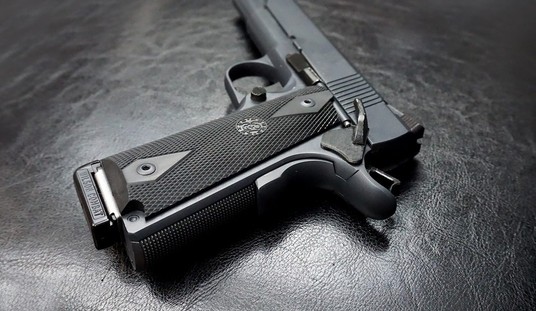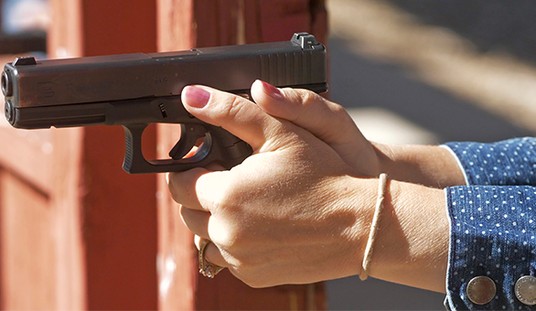The Department of Justice has officially published its proposed rule re-establishing a process for those prohibited from possessing a firearm to regain their Second Amendment rights; a program that exists on paper but has been defunded by Congress for the past several decades.
The rule can be found here, and folks can comment on the proposal until mid-October. The DOJ estimates as many as 1 million people could apply for relief in the first year the rule is in place, at a cost of about $20 million. DOJ wants to offset that expense by charging a $20 application fee; a substantial savings compared to hiring an attorney and suing to have rights restored.
DOJ isn't making a secret of the desire to cut down on the number of prohibited persons cases in the federal courts.
Since the Bruen decision, there have been many challenges to section 922(g)'s constitutionality under the Second Amendment, with a particularly large volume focusing on section 922(g)(1)'s prohibition on firearm possession by felons. Some of those challenges are declaratory judgment actions brought by felons who have not themselves violated section 922(g)(1) and who maintain that their prior convictions for non-violent offenses do not indicate that they pose an ongoing danger to others. Some of these plaintiffs have had success in challenging section 922(g)(1), as courts have found that the statute is unconstitutional as applied to them. At the same time, some courts have expressly recognized that section 925(c) would alleviate any such constitutional concerns, absent the proviso prohibiting ATF from carrying it out.
As recognized by courts, a functional section 925(c) process would render much of this litigation unnecessary and ensure that individuals meeting the relevant criteria may possess firearms under federal law in a manner consistent with the Second Amendment, while still protecting public safety.
Even more broadly, the Supreme Court has been clear that the rights of ordinary, law-abiding citizens to keep and bear arms is foundational. This rulemaking reflects the Department's commitment to the Second Amendment as an indispensable safeguard of security and liberty and a policy decision that the Department must find a way to both advance public safety and ensure that the rights of the people enshrined in the Constitution are not infringed.
Even before the rule was formally published today, the Department of Justice has been arguing that section 925(c) precludes at least some legal challenges to 922(g)(1), including a case heard by the Third Circuit on Monday.
Edward Williams is seeking a judgement from the courts that a decades-old DUI conviction shouldn't bar him forevermore from owning a gun, but in it's latest filing in Williams v. Bondi, the DOJ maintains that "In light of recent rulemaking by the Department of Justice, the federal prohibition can be lifted as part of an administrative process focused on assessing individualized dangerousness—the same sort of assessment that would otherwise occur in connection with an as-applied constitutional claim under this Circuit’s precedent," so therefore "Williams must seek restoration of his firearm rights through that administrative process in the first instance."
The Third Circuit might disagree, at least in Williams' case, given that the rule won't officially be in effect for several months. The public comment period doesn't end until October 20, and the DOJ is supposed to go through each comment individually before the rule can be enforced.
After the rule is formally in place, though, it could have a substantial impact on this type of litigation. The proposed rule doesn't automatically disqualify anyone from applying, but there is a "strong presumption that felons convicted of crimes that are particularly linked with dangerous or violent conduct are unlikely to be able to demonstrate that relief from disabilities is in the public interest."
Additionally, the rule requires that "those convicted of certain serious offenses that are not the violent or sexual offenses discussed above" wait ten years before they're no longer presumptive disqualified, with a presumptively disqualifying time period of five years for other offenses.
The proposed rule is a major improvement over the status quo, and would establish for the first time in decades a formal process for restoring Second Amendment rights. I have two big concerns, though.
First, I can't find any fixed deadline for DOJ to approve or deny a fully completed application under the proposed rule, which leaves open the possibility that these applications will simply sit and not be acted on... especially during an anti-gun administration. There needs to be a statutory deadline for DOJ to approve or deny these applications, as well as a formal appeals process for those who are denied.
I'm also concerned that the establishment of the rule might allow the courts to avoid addressing substantive questions about the scope of Section 922(g) and its many disqualifying crimes. The rule presumes that Section 922(g) is entirely constitutional, but some courts have held that portions of the language are constitutionally problematic; specifically the Fifth Circuit and its rulings against the prohibition on gun ownership for "unlawful" users of drugs.
I don't know that there's a way around my second concern, but the DOJ does have the power to improve the proposed rule by crafting an administrative deadline for DOJ to act on applications, as well as coming up with a formal appeals process beyond suing the DOJ in federal court. The rule in its current form is good, but those additions would make it even better, and that will be the gist of my public comment on the DOJ's proposal.
Editor’s Note: President Trump and Republicans across the country are doing everything they can to protect our Second Amendment rights and right to self-defense.
Help us continue to report on their efforts and legislative successes. Join Bearing Arms VIP and use promo code FIGHT to get 60% off your VIP membership.








Join the conversation as a VIP Member